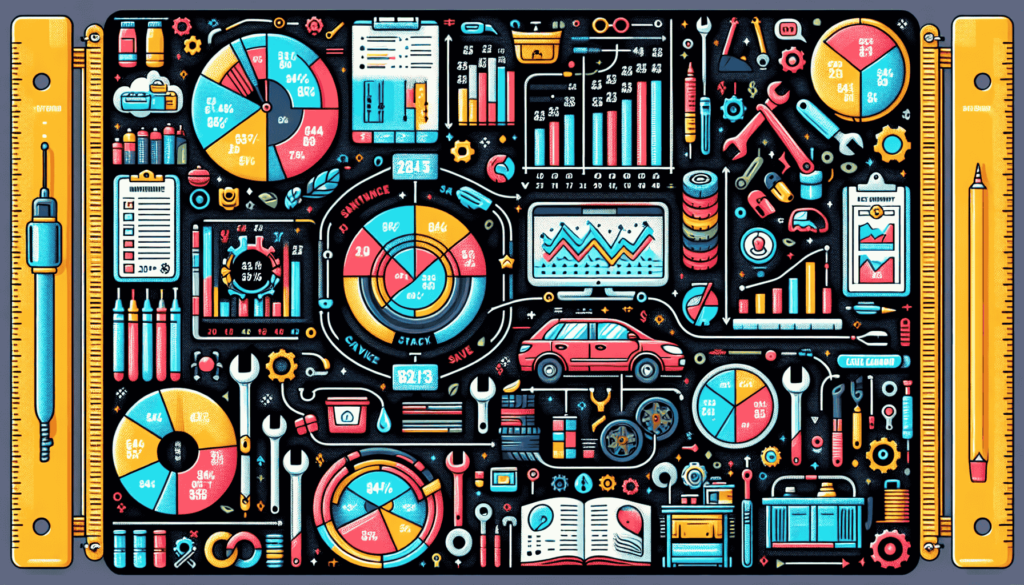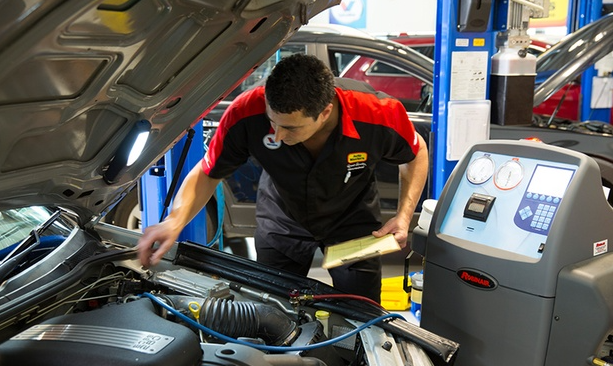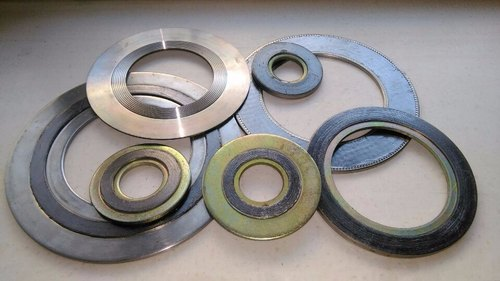How to Plan Ahead with Auto Repairs

Planning ahead for auto repairs is crucial for avoiding unexpected expenses and maintaining your car’s reliability. In this article, we’ll cover practical strategies on how to plan ahead with auto repairs, including budgeting maintenance costs, setting up a routine maintenance schedule, preparing for unexpected repairs, and finding reliable mechanics. With these tips, you can ensure your vehicle stays in top condition without financial stress.
Budgeting for Routine Car Maintenance
Budgeting for maintenance and repair costs helps manage car upkeep effectively. Setting a clear budget for routine car maintenance helps avoid financial stress from unexpected repairs. Regular maintenance not only saves money but also enhances your vehicle’s safety and reliability.
Experts recommend budgeting 1-2% of your vehicle’s value annually for maintenance, which can help prevent large repair bills. Setting aside money each month for maintenance costs alleviates financial worries and prepares you for routine upkeep.
A comprehensive maintenance plan involves understanding common tasks and their costs, setting a schedule, and consistently saving for these expenses. We’ll explore these aspects to help you plan ahead more effectively.
Common Routine Maintenance Tasks and Their Costs
Routine car maintenance includes tasks like oil changes, tire rotations, and air filter replacements. These tasks are crucial for keeping your car running smoothly and preventing costly repairs. For instance, an oil change typically costs between $35 to $125, depending on the type of oil used.
Tire rotations generally cost between $60 to $132 and ensure even wear, prolonging tire lifespan. Replacing brake pads, necessary for safety, can cost between $150 to $300 per axle. These average costs highlight the importance of budgeting for routine maintenance to avoid unexpected expenses.
Understanding these common maintenance tasks and their costs helps you plan your car budget better, ensuring your vehicle remains in top condition without unexpected expensive repairs.
Creating a Maintenance Schedule
Maintaining a schedule helps you stay on top of routine car maintenance. Your car’s owner’s manual is an invaluable resource, offering guidelines for tasks like fluid types and intervals. Including essential tasks such as oil changes, tire rotations, and brake checks in your calendar ensures you don’t miss any critical upkeep.
A well-planned schedule helps you avoid major repairs by addressing issues early. Regular check-ups and fluid level checks, which take no longer than five minutes, can significantly improve your car’s performance and longevity.
A detailed schedule keeps your car running smoothly and helps manage maintenance costs more effectively.
Setting Aside Monthly Savings
Setting aside money each month for car maintenance is practical for managing future expenses. Experts recommend saving around $20 to $30 monthly to build a financial buffer. This consistent habit helps avoid last-minute financial stress when maintenance or repairs are needed.
Creating a sinking fund, a dedicated savings account for future expenses, is effective. Consistently adding to this fund reinforces your financial security and ensures unexpected repairs don’t derail your budget. This approach prepares you for any maintenance needs, keeping your car in good shape and your finances in check.
Preparing for Unexpected Car Repairs

Unexpected car repairs can be a significant financial burden, but preparation can prevent strain and inconvenience. Setting aside approximately $1,350 yearly for maintenance and repairs is advisable. Maintaining a special savings fund for auto repairs helps manage these unexpected expenses more effectively.
Strategies to handle unexpected repair costs include negotiating, seeking second opinions, and inquiring about payment plans. Additionally, budgeting for alternative transportation options, such as rideshare services or public transportation, is important while your car is being repaired. Being aware of hidden costs, like the time and hassle involved in repairs, can also help manage your car budget.
Regularly calculating repair costs as part of your monthly budget and monitoring trends for your car’s make and model can help you plan more accurately. Prioritizing essential repairs like brakes and tires ensures your safety and keeps your car running smoothly, even on a tight budget.
Establish an Emergency Fund
An emergency fund for car repairs helps avoid relying on credit cards or loans for unexpected expenses. A recommended amount is between $500 to $1,000. Saving $50 monthly is a practical approach to building sufficient funds for potential repairs.
Using this emergency fund when needed helps avoid financial stress and ensures you can cover repair costs without dipping into your main savings. This dedicated fund provides a financial safety net for unexpected car repairs, making it an essential part of your overall financial planning.
Understanding Common Car Repairs and Their Costs
Understanding common car repairs and their costs is key for effective budgeting. For example, replacing a dead battery can cost between $45 to $250, while a timing belt replacement typically costs between $400 and $900. Minor engine repairs range from $200 to $500, while major repairs can exceed $1,000.
Engine replacements can cost between $4,000 and $10,000, and transmission repairs might range from $1,000 to $3,000 or more. These costs vary based on vehicle type, location, and specific repair needs. The make and model of your car also affect maintenance costs, with some vehicles requiring more expensive upkeep.
Budgeting for these potential car expenses and understanding the average repair costs for your car can help you manage your budget better and avoid financial surprises.
Extended Warranties and Insurance Options
Extended warranties can be a valuable investment for older cars or if you plan to keep your vehicle long-term. They help cover costs of major repairs like engine or transmission work after the original warranty expires. When evaluating if an extended warranty is right for you, consider your car’s age, mileage, and how long you plan to keep it.
While an extended warranty can provide peace of mind and potentially add value to your car, it’s crucial to read the fine print and understand what is covered before committing. This careful evaluation ensures you get the most benefit from your warranty and avoid unexpected repair costs.
Finding Reliable Repair Shops
Finding a reliable auto repair near me is crucial for ensuring quality service and fair pricing. Identifying a trusted mechanic before you need repairs can save money and stress in the long run. With nearly 7,000 approved auto repair facilities, AAA is a valuable resource for finding reputable repair shops.
Researching and comparing repair shops, getting multiple repair quotes, and building a relationship with a trusted mechanic are essential steps. These strategies help you make informed decisions and ensure your car receives the best care possible.
Researching and Comparing Auto Repair Shops
To find a reliable repair shop, start by reading reviews and asking for recommendations from friends and family. Industry affiliations and memberships can also signify a mechanic’s commitment to high service standards. When comparing repair shops, consider both price and quality of service to ensure you get the best deal.
A trustworthy mechanic is crucial for quality service and fair pricing. Thorough research and comparing options can help you find a repair shop that meets your needs and fits your budget.
Getting Multiple Repair Quotes
Gathering multiple repair estimates is essential for smarter, cost-effective decisions. Call potential shops, describe the issue, and ask for a ballpark estimate. Ensure to request written estimates for clarity on costs.
When comparing service estimates from repair shops, check inclusions for quality parts and thorough service to ensure a fair comparison. This approach helps you find the best value for your money and avoid unnecessary expenses.
Building a Relationship with a Trusted Mechanic
Building a long-term relationship with a trusted mechanic can lead to consistent and reliable service, saving money and time. Recommendations from friends and family can help you find a reliable mechanic.
Getting multiple quotes for repairs and maintaining a competitive relationship with your mechanic ensures fair pricing and quality service. This relationship is key to keeping your car in good condition and managing repair costs effectively.
Reducing Car Repair Costs
Reducing car repair costs involves strategies like performing regular maintenance yourself, comparing prices from different mechanics, and using high-quality parts. Carrying essential tools like wrenches and jumper cables can help manage minor repairs on the road.
Engaging in smooth driving practices, maintaining a safe distance from other vehicles, and removing unnecessary weight from your vehicle can help reduce wear and tear. Additionally, checking a mechanic’s qualifications and experience ensures they can properly handle your vehicle’s needs.
Regular Inspections and Preventive Maintenance
Regular maintenance prevents big problems before they happen. Consistent vehicle inspections enhance reliability by minimizing the risk of unexpected breakdowns. Adhering to the maintenance guidelines in the owner’s manual helps avoid costly repairs.
Routine tasks like oil changes and tire rotations are essential for maintaining your car’s performance and fuel efficiency. Regular checks can prevent minor issues from escalating into costly repairs, keeping your car running smoothly and efficiently.
DIY Repairs for Simple Fixes
Performing straightforward repairs at home can significantly reduce your overall maintenance expenses. Basic DIY tasks include checking tires, replacing fluids, doing oil changes, maintaining brakes, and changing lights. Simple tasks like changing wiper blades or air filters can significantly reduce repair costs.
However, for bigger jobs requiring specialized skills or tools, it’s better to seek professional help.
Using High-Quality Parts
Investing in high-quality parts can lead to better vehicle performance and fewer repairs over time. Quality parts enhance the longevity of your vehicle and reduce the frequency of repair needs.
Cheap car parts can wear out fast, leading to more frequent shop visits. When comparing estimates, inquire about the quality of parts included in the service to make an informed decision.
Financing Options for Car Repairs
Financing options are available to help manage the cost of car repairs, especially when unexpected expenses arise. You can finance repairs using methods like cash, credit cards, or personal loans from banks. Each option has its benefits and considerations, making it crucial to choose the one that best fits your financial situation.
Using a credit card for car repairs allows for deferred payments but can lead to accumulating interest if not managed well. Many repair shops offer flexible payment plans, allowing customers to spread out the cost of repairs over several months. Emergency car repair loans can provide quick funds to cover urgent repair bills, with some offering amounts up to $30,000.
Choosing the right financing option involves understanding the terms and conditions, interest rates, and repayment schedules. Let’s explore some of these options in more detail to help you make an informed decision.
0% APR Credit Cards
Using a 0% APR credit card for car repairs can be an effective way to manage large repair expenses without the immediate financial burden. This option allows you to pay over time without interest, providing financial flexibility. However, it’s crucial to use the card only for repairs to avoid unnecessary debt.
To maximize the benefits of a 0% APR credit card, ensure to pay off the balance before the interest rate applies. This approach helps you avoid high-interest fees and manage your car repair costs more effectively.
Personal Loans from Banks and Credit Unions
Personal loans can be an effective solution for financing car repairs, offering lower interest rates compared to credit cards. These loans provide flexible repayment terms that can be tailored to fit individual financial situations.
By opting for a personal loan, you can manage your car repair expenses without the high-interest rates associated with credit cards. This option can help you maintain financial stability while ensuring your car receives the necessary repairs.
Payment Plans Offered by Repair Shops
Many repair shops offer payment plans that allow you to spread out the cost of repairs, making them more manageable. These plans can include installment payments or financing through third parties, providing flexibility for customers.
When choosing a payment plan, be cautious and read the terms carefully to avoid unexpected fees or interest rates. Understanding the details ensures that you can manage your repair costs effectively without additional financial stress.
Maximizing Your Car’s Lifespan
Maximizing your car’s lifespan involves consistent maintenance and adopting good driving habits. Regular maintenance helps prevent significant breakdowns and high repair expenses, enhancing the safety and reliability of your vehicle. Early detection of minor issues through regular maintenance can prevent them from escalating into expensive repairs.
Proper maintenance, such as regular inspections and adhering to the owner’s manual, ensures your car stays in good shape and lasts longer. Implementing eco-friendly maintenance strategies also benefits the environment and enhances vehicle longevity.
By following these practices, you can keep your car running smoothly for years to come, reducing the need for frequent repairs and saving money in the long run.
Following the Owner’s Manual
Following the owner’s manual is crucial for preventing early wear and tear on your car. The manual provides detailed guidelines for routine maintenance tasks, ensuring your vehicle performs optimally and remains reliable.
Checking your oil at least once a month and driving carefully can further reduce maintenance costs. By adhering to these recommendations, you can keep your car running smoothly and avoid unexpected car repairs.
Practicing Safe Driving Habits
Practicing safe driving habits can significantly reduce wear and tear on your vehicle, preventing accidents and avoiding costly repairs. To minimize wear and tear, avoid hard braking and fast starts while driving.
Maintaining safe driving practices like avoiding speeding and sudden braking helps protect your vehicle and ensures a smoother, more reliable ride. These habits contribute to the longevity of your car and reduce the need for frequent repairs.
Eco-Friendly Maintenance Practices
Adopting eco-friendly maintenance practices can save you money and help your car last longer. These habits reduce overall maintenance costs and benefit the environment by minimizing your car’s carbon footprint.
Keeping your car running longer through eco-friendly practices is a crucial step in protecting the environment and ensuring your vehicle remains in good condition. Regular maintenance and responsible driving habits are key components of this approach.
Summary
Planning ahead for auto repairs involves a combination of budgeting for routine maintenance, preparing for unexpected repairs, and understanding financing options. By setting aside monthly savings and creating a detailed maintenance schedule, you can manage your car repair costs more effectively.
Finding reliable repair shops and building a relationship with a trusted mechanic ensures quality service and fair pricing. Reducing repair costs through regular inspections, DIY repairs, and using high-quality parts helps keep your car in good shape. By following these strategies, you can maximize your car’s lifespan, save money, and avoid the stress of unexpected car repairs.



